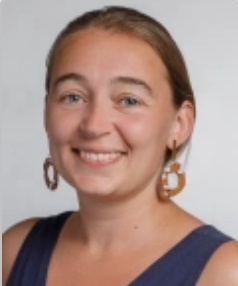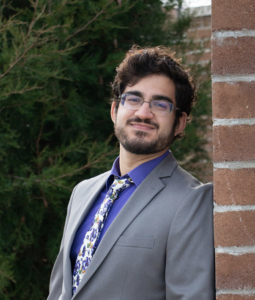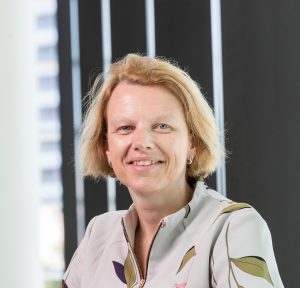The Lifetime Achievement Award is awarded each year by the ISPG to a scientist(s) who made a major contribution to the advancement of the field of Psychiatric Genetics.
Cynthia M. Bulik
Clinical psychologist Cynthia M. Bulik, Ph.D., FAED is the Founding Director of the University of North Carolina Center of Excellence for Eating Disorders, Distinguished Professor of Eating Disorders in the School of Medicine at the University of North Carolina at Chapel Hill, and Professor of Nutrition in the Gillings School of Global Public Health. She is also Professor in the Department of Medical Epidemiology and Biostatistics and Director of the Centre for Eating Disorders Innovation at Karolinska Institutet in Stockholm, Sweden. She leads global eating disorder genetics initiatives and develops, evaluates, and disseminates evidence-based treatments for eating disorders. Dr. Bulik has been the recipient of numerous awards including the Eating Disorders Coalition Research Award, the Academy for Eating Disorders Leadership Awards for Research and Advocacy, the Price Family National Eating Disorders Association Research Award, and Lifetime Achievement Awards from both the National Eating Disorders Association and the Academy for Eating Disorders.
She has published over 700 peer-reviewed papers, 60 chapters, and 7 books related to eating disorders. Between 1991-1996 she was Lecturer and Senior Lecturer in the Department of Psychology at the University of Canterbury and is currently Honorary Professor in the Department of Psychological Medicine at the University of Otago, Christchurch School of Medicine. She is the global lead principal investigator of the Eating Disorders Genetics Initiative (EDGI).
Prof. Bulik is past president of the Academy for Eating Disorders, past Vice-President of the Eating Disorders Coalition, and past Associate Editor of the International Journal of Eating Disorders. She serves on advisory boards of several advocacy organizations and is founder and co-chair of the Eating Disorders Working Group of the Psychiatric Genomics Consortium. See http://cynthiabulik.com.
THEODORE REICH EARLY CAREER AWARD
Theodore (Ted) Reich (1938 – 2003) was the first President of ISPG and was both an outstanding researcher and mentor to young scientists. The award is made for published work on psychiatric genetics that is of exceptional merit to candidates who have finished their training within the last ten years in the year of their nomination.
Laura Huckins, PhD
Dr. Laura Huckins is an Associate Professor in the Department of Psychiatry. She received her masters in BioEngineering from Imperial College London in 2011, and her PhD in Molecular Biology and Psychiatric Genetics from the University of Cambridge in 2015.
Her research focuses primarily on studying psychiatric disorders, as well as development and application of multi-omic methods to interpret the functional consequences of GWAS variants and to study how genetics and environment interact. Her lab focuses particularly on Eating Disorders and PTSD; to this end, she is co-chair of the PGC Eating Disorders working group. Dr. Huckins' work is funded by the Klarman Family Foundation, the National Institute of Mental Health, and the National Institute of Environmental Health Sciences.
GERSHON PAPER OF THE YEAR AWARD
In honor of Dr. Elliot Gershon, the International Society of Psychiatric Genetics presents the Gershon Paper of the Year Award to a recipient who has been published in the past year (June 2022 to present) in the psychiatric genetics field.
Alexander S. Hatoum, Ph.D.
“Multivariate genome-wide association meta-analysis of over one million subjects identifies loci underlying multiple substance use disorders”
Alexander S. Hatoum is a Research Assistant Professor at Washington University and is affiliated with the departments of Psychological & Brain sciences and the Artificial Intelligence and the Internet of Things in Medicine (AIM) Institute. His research focuses on biostatistical and psychometric algorithms to predict addiction severity and treatment, with particular focus on drug repositioning for addiction and psychiatric heterogeneity. Alexander's work has appeared in prominent outlets in our field including Nature, Biological Psychiatry, Jama Psychiatry, Lancet Psychiatry, Nature Reviews Neuroscience, among others. Beyond the academic halls, Alexander's work has been used to advise U.S. government interest on predictive machine learning algorithms for Opioid Use Disorder. He feels incredibly fortunate to have worked in the supportive psychiatric genomics consortium substance use disorders working group throughout the process of producing this paper and he would like to thank the consortium members whose continued support led to this achievement. He would also like to thank his network of coauthors and recognize the foundational work many of them have done in the field that made this paper possible. He accepts this award on behalf of the continued effort of the working group to produce foundational work in the field of addiction science.
Richard Todd (1952 – 2008) was an internationally known expert on the influences of genetics and environment on psychiatric illness in children. The award is given by the ISPG for excellence in the area of Childhood Psychiatric Disorders.
Professor Christel Middeldorp started in 2023 as the director of the academic collaborate centre "Family Mental Health," a collaboration between Amsterdam University Medical Centres, Arkin mental health service and Levvel child and youth mental health service. She also has an honorary professor position with the Child Health Research Centre (CHRC), UQ, and Child and Youth Mental Health Service (CYMHS), Children’s Health Queensland Hospital and Health Service (CHQ HHS) in Brisbane, Australia where she worked for six years. Her research interests involve the role of genetic and other familial influences on the development and persistence of psychopathology across the lifespan. She is the co-PI of the Behavior&Cognition working group of the EAGLE consortium (EArly Genetics and Lifecourse Epidemiology), a large collaborative of population based longitudinal child and adolescent cohorts from over the world. She has also set up longitudinal clinical cohorts of children with mental disorders and their parents. Finally, Middeldorp aims to improve the treatment for families with multiple members affected by performing clinical trials.
In 2019, Christel was appointed by the Australian federal government as Co-Chair of the Childhood Mental Health and Wellbeing Strategy Working Party. The strategy was published in October 2021.
HUGH GURLING AWARD
Gabriela Chavarria-Soley, Escuela de Biologia, Universidad de Costa Rica | Allele Frequency Variation of Association Signals for Schizophrenia in Latin American Populations
Nadia Corral-Frias, Universidad de Sonora | Advancing the Understanding of Depression Genetics: An Introduction to the Major Depression Working Group of the Latin American Genomics Consortium
Zhiqiang Li, Qingdao University |Investigating the Relationship Between Mosaic Chromosomal Alterations and Schizophrenia
Shih-Kai Lin, Institute of Epidemiology and Preventive Medicine, College of Public Health, National Taiwan University |The Potential Microbiota Biomarker and Functional Characteristics between Patients with Major Depressive Disorder, Bipolar Disorder, and Healthy Controls
Gabriela Martinez-Levy, Instituto Nacional de Psiquiatría Ramon de la Fuente Muñíz |European Externalizing Polygenic Risk Scores Predicts ADHD Among Mexican Youth
Marcos Santoro, Universidade Federal de São Paulo |Analysis of Copy Number Variants (CNVs) in a Brazilian High-Risk Cohort for Psychiatric Disorders
Huan Song, West China Hospital, Sichuan University |Shared Genetic Factors between Stress-Related Disorders and Cardiovascular Diseases
Olivia Wootton, University of Cape Town |Using Genetically Informed Cognitive Dimensions to Explore Phenotypic Heterogeneity in Schizophrenia






